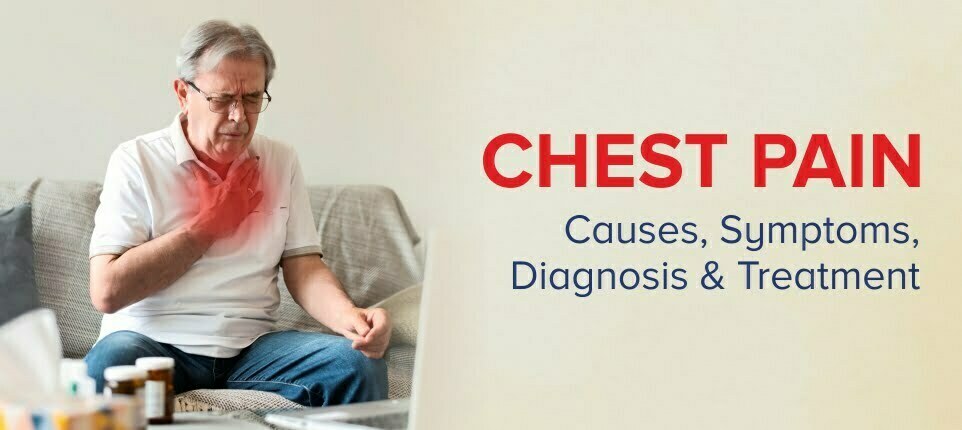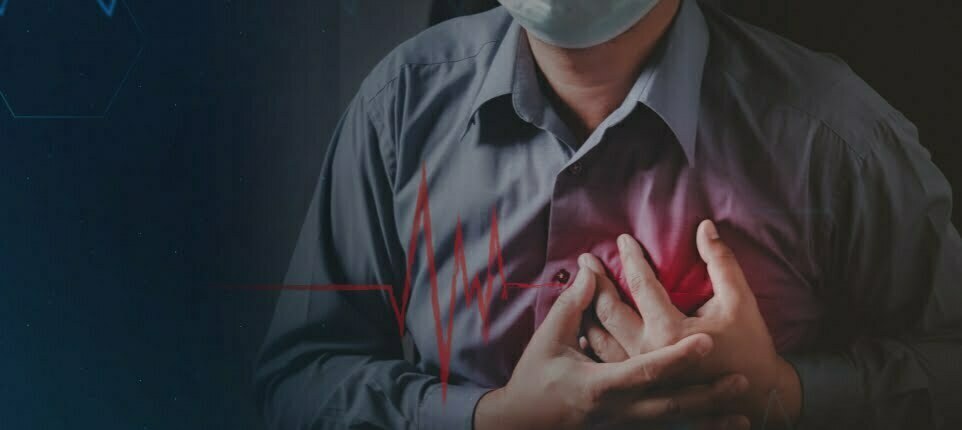


Chest pain is a frequent issue that many individuals have encountered at some stage in their lives. It can occur in the upper body due to many possible causes.
Chest pain may result from heart issues, lung disorders, and other serious medical conditions like aortic dissection or blood clots
However, chest pain can also occur due to minor health issues like muscle strain or inflammation. Regardless of the cause, it’s crucial not to ignore chest pain as it could signal a serious health condition.
In this blog, we aim to provide comprehensive information on the causes, diagnosis, and treatment of chest pain.
Chest pain may be felt as tightness, pressure, squeezing, or burning sensation in the chest. The pain can be located anywhere in the upper body and may radiate to your neck or jaw on one or both sides of your body.
Chest pain is often indicative of a heart problem, but not always. The pain can also be caused by other conditions, such as acid reflux or lung disease. Moreover, it might be cardiac pain that is a common indicator of heart disease.
Such discomfort can be either dull or sharp in nature and may radiate outward from the breastbone or sternum region but not necessarily so.
Several things can chest pain causes. Common causes of chest pain include:
It’s also possible that you have a symptom of another medical condition that causes chest pains. Chest pain can be attributed to cardiac conditions such as angina, aortic dissection, cardiomyopathy, pericarditis, and myocarditis.
The most effective way to determine the cause of your chest pain is to discuss your symptoms with a doctor
Common symptoms that often accompany chest pain include:
Not every instance of chest pain requires a visit to the Emergency Room (ER). However, it’s important to remain vigilant and heed what your body is indicating.
It’s advisable to consult a chest specialist doctor if you experience sudden chest pain lasting longer than 5-10 minutes. If the pain persists despite medication or rest, it could indicate severe cardiac issues.
Moreover, cardiac chest pain can be fatal, indicating a heart attack. You must rush to the doctor if you have the following symptoms:

Chest pain is typically diagnosed through a combination of medical history and physical examination.
Your doctor will ask about the onset, duration, and location of your pain; what activity triggered it; whether it’s been continuous or intermittent; if anything seems to bring relief; if any other symptoms accompany the chest pain (like shortness of breath); and if you smoke or drink alcohol regularly.
The doctor may also order tests, including –
The treatment for chest pain varies depending on its underlying cause. If you are experiencing chest pain, your doctor may suggest one or more of the following treatments:
The bottom line is that chest pain isn’t normal and needs to be treated. It is one of the most common medical conditions, so it’s important to understand what causes it, how it’s diagnosed, and what treatments are available.
If you have chest pain, it’s important to be evaluated by a doctor. Lung conditions are the culprit in many cases of such pain. And they require immediate medical attention. Amandeep Hospital has expert Pulmonologists providing advanced diagnostic and therapeutic solutions for numerous thoracic and respiratory problems.
Our doctor can help you figure out if your chest pain is due to a serious condition or not. So, take care of your health. Visit us for a checkup by booking an appointment right away!
September 30, 2024
Recognize the Signs: Understanding Appendicitis Pain Symptoms
September 24, 2024
Unveiling the Truth: I-Pill Side Effects Every Woman Should Know
We use cookies to enhance your experience. By clicking "Accept", you agree to our use of cookies.